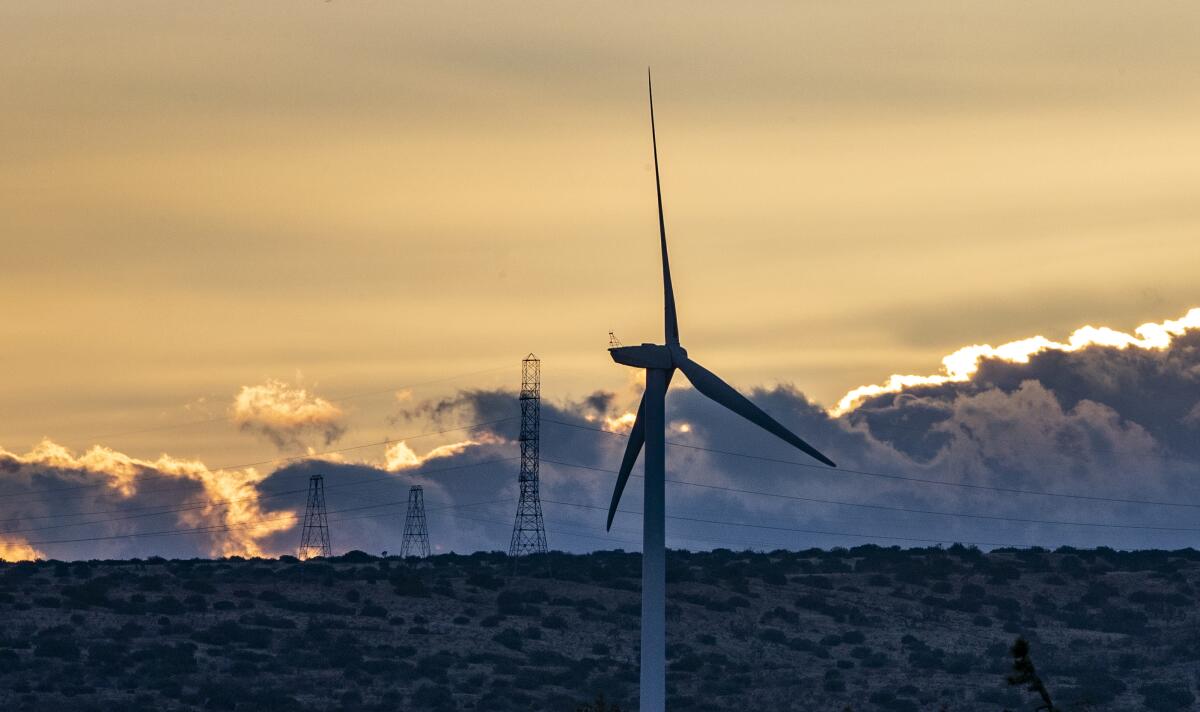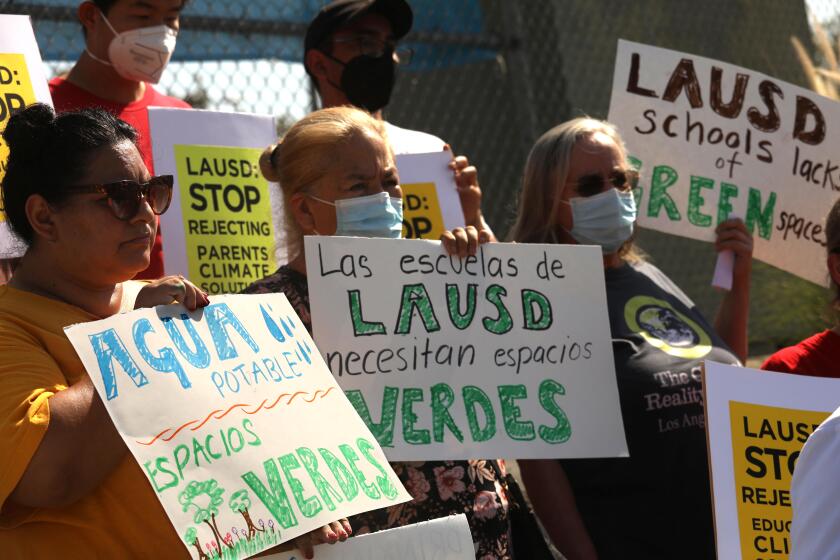Letters to the Editor: The solution to saving California’s condors? Stop building in their habitats

- Share via
To the editor: I am repelled by the phrase “minimize costs and maximize profits” in relation to protecting California’s condors.
Wind turbines have been around for decades. The issue of birds colliding with blades was a consideration from the start. I had long thought a solution had been found in having flashing lights on the setup. Yet “thousands” of eagles, hawks and bats are killed each year?
European countries like Germany and Norway generate power from the wind. Is the ground beneath their turbines littered with carcasses too? Has anyone checked with the social democracies to see whether they have a solution?
Lisa Edmondson, Los Angeles
::
To the editor: Plan? How about NOT building wind turbines in the condor habitat in the first place? That way, no plan would be needed.
Just a suggestion.
David L. McDaniel, Capistrano Beach
::
To the editor: It is unfortunate the condor remains a poster child for the Endangered Species Act. Tens of millions of tax dollars later, this last remnant of the extinct Pleistocene megafauna is still unable to survive and breed in the wild without human intervention. Why? Because this bird evolved in a different ecosystem and has been replaced by the turkey vulture in its ecological niche.
Critically endangered species like the monarch butterfly go unlisted because the government does not have the resources to invest in their recovery, while we pour dollars down the drain trying to reverse the judgment of Mother Nature. It is time to let the condor rise or fall on its own and exercise a little ecological justice to help the many other endangered species survive.
Mike Post, Winnetka
More to Read
A cure for the common opinion
Get thought-provoking perspectives with our weekly newsletter.
You may occasionally receive promotional content from the Los Angeles Times.









